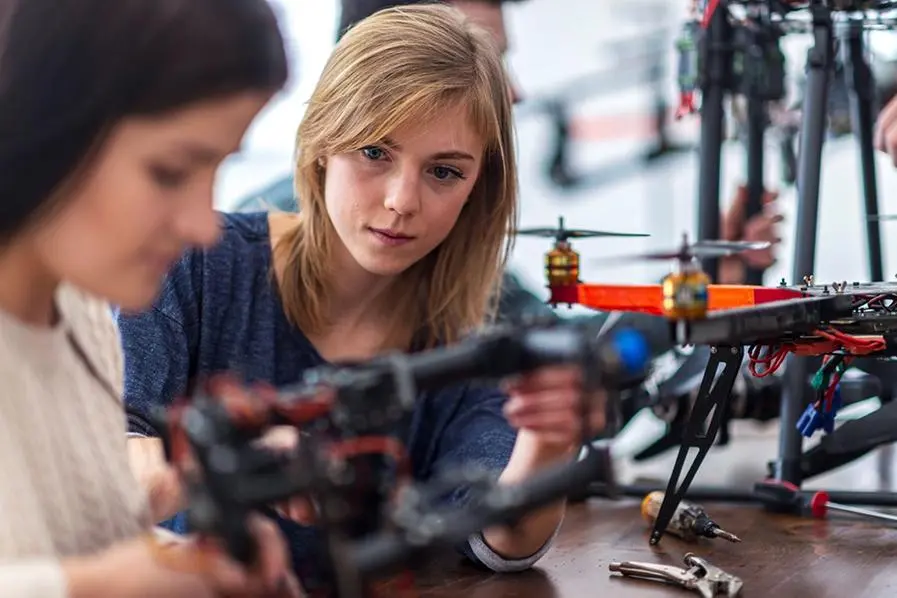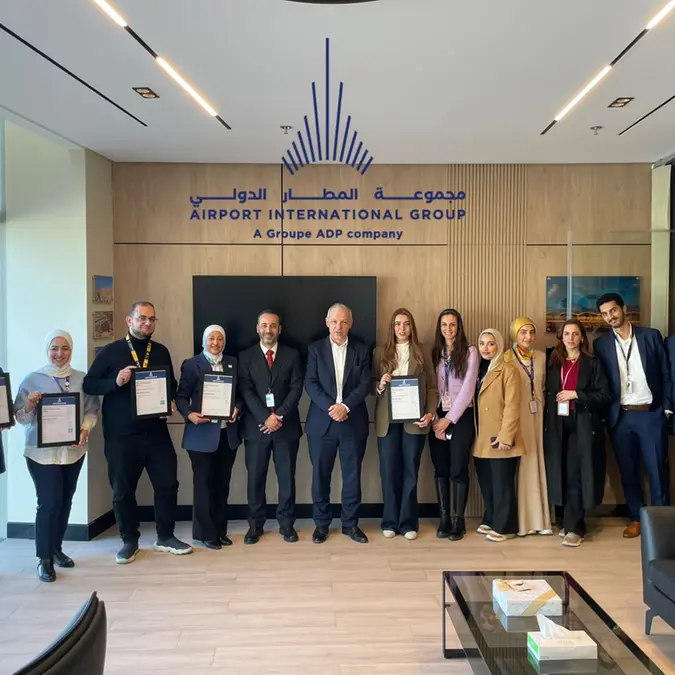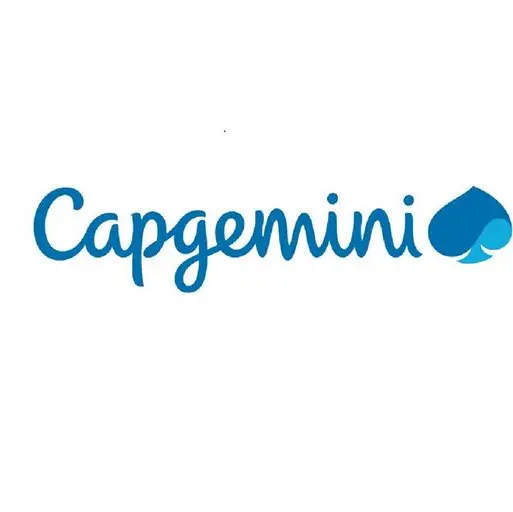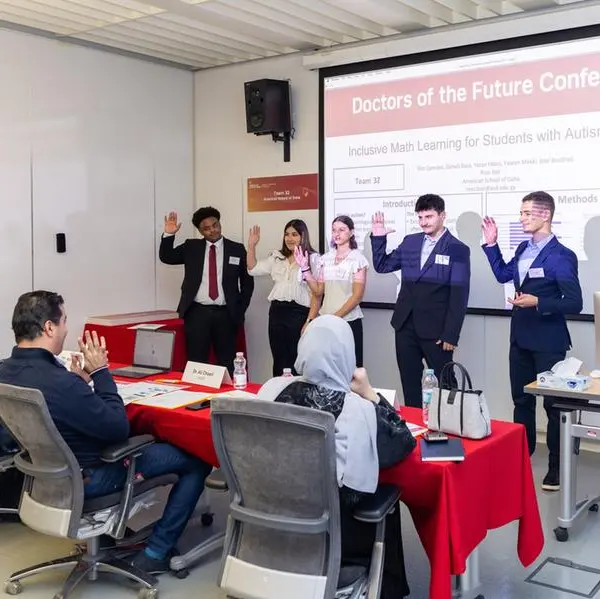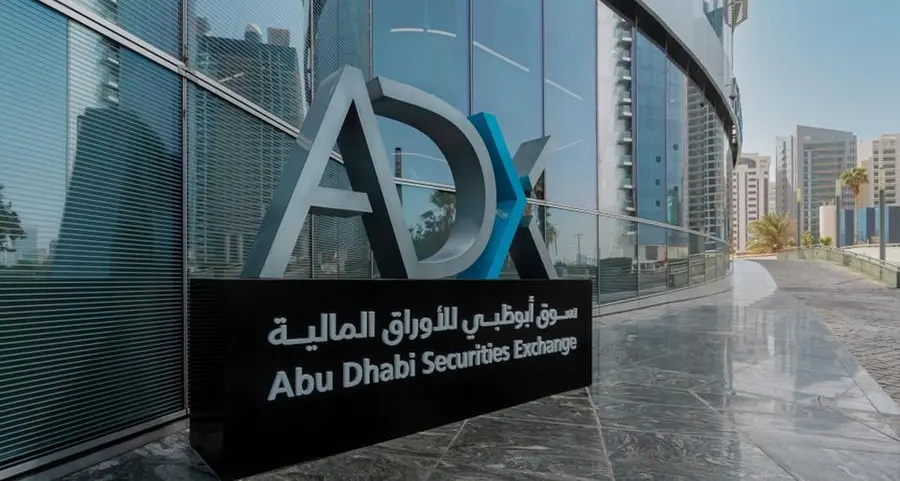PHOTO
ABU DHABI – ASPIRE, the technology program management arm of Abu Dhabi’s Advanced Technology Research Council (ATRC), today announced that Open Robotics will be providing the open-source simulator for the Simulation Phase of the MBZIRC Maritime Grand Challenge. The technology will incorporate historic weather data from the Swiss-firm meteoblue for the upcoming phase of the competition, which will see semi-finalists complete inspection and intervention tasks in simulation.
Open Robotics, a global leader in software for robotics simulation and application development, will build the simulation platform on Gazebo and Robot Operating System (ROS). Gazebo is an open-source 3D robotics simulator, which accurately and efficiently simulates robots for a wide range of applications, including maritime robotics. It has a robust physics engine, advanced 3D graphics and programmatic interfaces, including integration with ROS. Gazebo also offers an online 3D model repository, Fuel, that offers various robot and environment 3D assets readily available for simulation.
The meteorological service company, meteoblue, that delivers high-quality weather information worldwide for any point on land or sea in the world, will allow competitors to use historical Abu Dhabi weather data from the past 20 years to simulate realistic weather conditions.
Dr. Ray O. Johnson, Acting Chief Executive of ASPIRE, said: “With Open Robotics and meteoblue, we have selected two organizations that are both at the pinnacle of their respective fields. The MBZIRC Maritime Grand Challenge will push the boundaries in maritime robotics; we are providing the competitors with a world-class simulation environment with Open Robotics and meteoblue.”
The simulation environment created for the MBZIRC Maritime Grand Challenge will consist of a large coastal region, UAVs with different sensor configurations, a USV model, a robot manipulator, and multiple target vessels. A set of ROS 2 APIs – or Application Programming Interfaces – will be exposed for controlling robots and reading data from sensors in simulation. Inter-robot communication will be provided through a separate set of APIs, and the communication links are subject to package loss and interferences that are common in outdoor wireless communication.
The Robot Operating System (ROS) is a set of software libraries and tools for building robot applications. From drivers to state-of-the-art algorithms, and with powerful developer tools, ROS has what one needs for a robotics project.
“We are making all the software open source,” Johnson continued. “Our mission is to drive the creation of transformative technologies and encourage global collaboration to help stimulate innovation across the field of maritime robotics. Sharing the technology to help make innovation easier was our goal.”
Brian Gerkey of Open Robotics expressed delight to be part of MBZIRC Maritime Grand Challenge as he underscored the organization’s mission to support the development, distribution, and adoption of open-source software for use in robotics research, education, and product development. “In our effort to be the hub of the global robotics community, we create open software and hardware platforms for robotics that can be used by the scientific community to solve important problems. The MBZIRC Maritime Grand Challenge is a fantastic example of this, and we’re really excited to be a part of the competition,” he commented.
Open Robotics offers two open platforms: ROS and Gazebo so robots can be programmed with ROS and simulated with Gazebo. “These platforms are widely used around the world, from production deployments to classroom projects,” he added.
The MBZIRC simulation platform will run on Ubuntu 20.04 (Focal). Users can install the software from source for local testing and development. In addition, Docker images of the simulation setup will also be made available.
The MBZIRC Maritime Grand Challenge simulator is available at https://github.com/osrf/mbzirc/
-Ends-
About MBZIRC
The Mohamed Bin Zayed International Robotics Challenge (MBZIRC) is an international robotics competition held every two years drawing participation from universities, research institutions, companies, and individual innovators from around the world to develop solutions to some pressing global challenges through the application of autonomous robotics.
MBZIRC is organised by ASPIRE, the dedicated technology programme management pillar of the Advanced Technology Research Council (ATRC). By providing an environment to foster innovation and technical excellence in robotics, MBZIRC supports the UAE’s transition to a knowledge economy while consolidating Abu Dhabi and the UAE’s position as an emerging hub of innovation in advanced technology.
For more information, visit www.mbzirc.com
Connect with us on social media:
LinkedIn: https://www.linkedin.com/company/mohamed-bin-zayed-international-robotics-challenge
YouTube: https://www.youtube.com/c/MBZIRC
Twitter: https://twitter.com/mbzirc?lang=en
Facebook: https://www.facebook.com/mbzirc/
Instagram: https://www.instagram.com/mbzirc/?hl=en
Methodology of the MBZIRC Maritime Grand Challenge
In the white paper phase, each participating team is required to submit a white paper by 31 January 2022, describing the team; the background in swarm robotics; computer vision; simultaneous localisation and mapping; marine vehicle expertise, communications capabilities, and the technical approach to be used in solving the Challenge.
In the simulation phase, the participating teams will be required to complete inspection and intervention tasks in simulation. In August 2022, this phase will see the shortlisting of the five finalist teams.
Teams will also need to submit proof-of-concept videos on the different sub-components of their system and demonstrate the feasibility of the approach used. The proof videos should cover the following components of the Challenge:
- Multi-UAV search and inspection of large representative structures
- Intra-swarm communication and collective decision-making
- Collective transportation of objects between the large structure and the home location
In the demonstration phase that takes place in June 2023, teams will prove their system capabilities. Evaluation will be based on the total time required to complete the inspection and intervention tasks. This phase includes inspection, ID, and manipulation subtasks, with the maximum mission completion time set at 50 minutes.
Eligibility and prizes
The competition will see international teams demonstrate their prowess and skills in building and operating their USVs and UAVs in a GNSS-denied environment.
Interested teams must complete the registration process by visiting the website https://www.mbzirc.com/. Registration is open until December 30, 2021.
The team winning the first prize will take home US $2,000,000. The team placed second will receive US $500,000, while the team bagging the third prize wins US $250,000. A simulation phase completion prize of US $500,000 will be split among the teams progressing to demonstration phase.
About ASPIRE
ASPIRE drives the creation of future transformative technologies by working in consultation with cross-sector industry stakeholders, universities and research institutes to frame problem statements. It also launches grand challenges and international competitions to solve some of the world’s most pressing issues. ASPIRE brings together exceptional people, ideas, resources, and technologies to solve complex challenges. ASPIRE is the technology programme management pillar of Abu Dhabi’s Advanced Technology Research Council (ATRC). ATRC is responsible for defining Abu Dhabi’s research and development strategy, consolidating funds for efficient investment, and driving policy and regulation.
For more information, visit www.aspireuae.ae
Connect with us on social media:
LinkedIn: https://www.linkedin.com/company/aspire-uae
Twitter: https://twitter.com/aspireuae
Instagram: https://www.instagram.com/aspire.uae/
About Advanced Technology Research Council (ATRC)
Advanced Technology Research Council shapes research and development for transformative technology outcomes. It is responsible for defining Abu Dhabi’s R&D strategy across academia and industry, consolidating funds for efficient investment, and driving policy and regulation for agile decision-making. By guiding breakthrough technologies, it is establishing Abu Dhabi and the wider UAE as a desired home for advanced technology talent and a global hub for innovation.
For more information, visit www.atrc.ae
Connect with us on social media:
LinkedIn: https://www.linkedin.com/company/atrcuae
YouTube: https://www.youtube.com/channel/UCEu90gz1Yrlpx85FysKVJNw
For media enquiries, please contact:
ASPIRE
Advanced Technology Research Council
comms@atrc.ae
